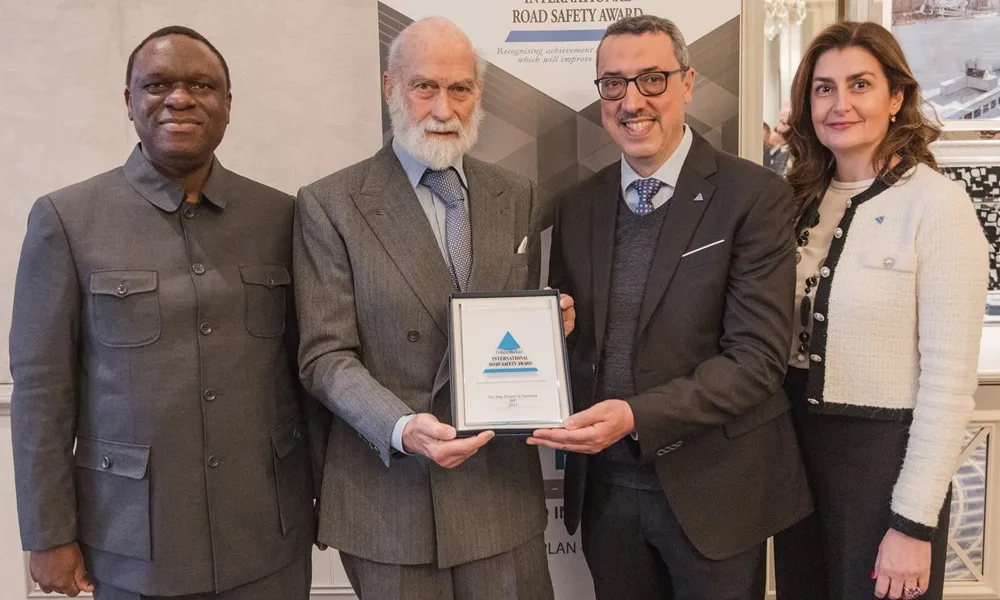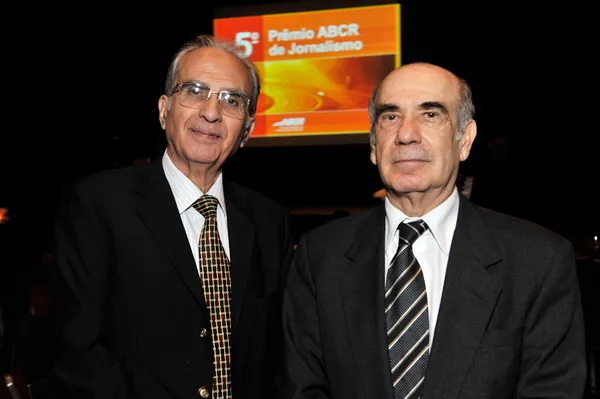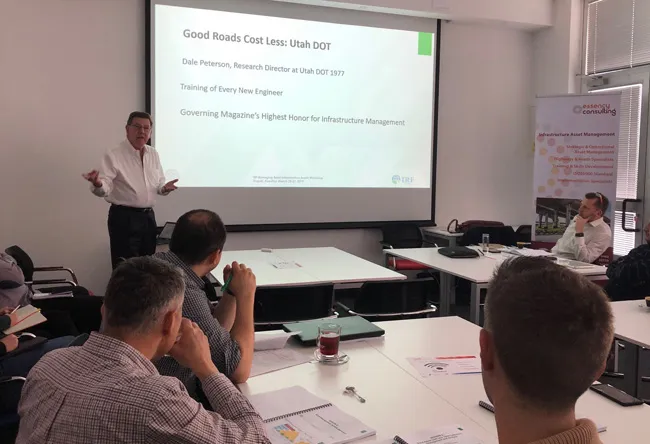
The world-first Ten Step Tanzania Project, which has built sustainable institutional capacity, impact, and partnerships to eliminate high-risk roads in Tanzania, has been honoured with a Prince Michael International Road Safety Award.
Jointly funded by the United Nations Road Safety Fund (UNRSF) and the Foreign Commonwealth and Development Office (UKAid), through the Global Road Safety Facility (GRSF) of the World Bank, the 30-month pilot project aimed to curb the more than 16,000 people (estimated) who die on Tanzania’s roads each year.
Under the guidance of the United Nations Economic Commission for Africa (UNECA), the project was implemented by a consortium led by the International Road Federation (IRF) headquartered in Geneva, Switzerland and which included iRAP, PIARC and Tanzania Road Association. The project brought together the Government of Tanzania through the Ministry of Works and and Transport (MoWT), as well as other leading institutions, road safety NGOs and industry stakeholders in Tanzania.
The project led to the shaping of a National Training, Accreditation and Certification Scheme to build local capacity for the assessment, audit and design of safer roads beside training over 500 road safety stakeholders. Among key milestones delivered by the project were recommendations for a National Road Infrastructure Safety Strategy and Action Plan, and for the revision of the Tanzania Road Geometric Design Manual prioritising the safety of all road users.
Present in London at the award ceremony, Anouar Benazzouz, president of the International Road Federation (IRF) said, “We are delighted to accept this award on behalf of all the project partners. Tanzania made history as the first country in the world to implement the United Nations Road Safety Collaboration (UNRSC) Ten Step Approach. We take immense pride in the project’s achievements and applaud the determination and enthusiasm of the Tanzanian authorities and stakeholders who embraced this opportunity to make Tanzania’s roads safer.”








